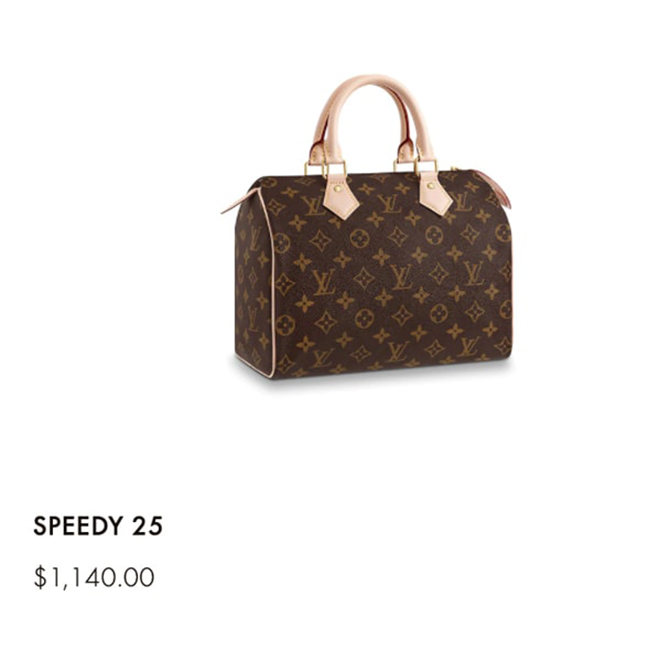The Psychology Behind Consumerism: What Makes Luxury Brands So Desirable?
Using distinctive and memorable branding techniques, organizations popularize everything from the most quintessential needs down to the most seemingly prosaic products imaginable – offering a sense individualism amidst a sea of mass produced replicas.

LV “Spirit of Travel” Campaign
In a constant cycle that never ceases to impress, shock and evolve, even in times of a global health crisis, fashion remains a hot topic of today’s society. From latest trends to the Do’s and Don’ts, the industry is making headlines yet again, for reasons some may dread.
The Psychology Behind Consumerism: What Makes Luxury Brands So Desirable?
- Image By: Purseblog.com
- Image By: Purseblog.com
Making the most subtle attempt to increase prices of its most popular designs, French fashion house and luxury retail company, Louis Vuitton Malletier unveils its latest range… of price tags. Boosting prices by a whopping 20% within the a span of six months, these changes affect everything from the Multi Pochette Accessoires, to the beloved Onthego GM tote, and Spring 2020 Speedy BB – which is currently worth $2,900 following an additional $140 increase.

Following their lead, privately held French company, Chanel S.A., announced the potential hike of their own prices including the iconic 11.12, 2.55, Boy, Gabrielle, and Chanel 19 handbags – resulting in a massive swarm of eager brand-enthusiasts arriving as early as 5am, creating lines which snaked along the perimeters of the Seoul-based store, despite social distancing guidelines and the omnipresent threat of Covid-19.
Armed with face-masks which have since failed to protect them from the highly infectious disease, the gathering of hungry consumers, ready to tear holes through their bank accounts, formed at least 100 new Covid-19 cases, prompting fears of a subsequent wave of infections.
What Makes Luxury Brands So Desirable?

2020 Dior Cruise Campaign
Potential seconds waves aside, there is greater question in this easily avoidable scenario: What puts these brands in a league of their own, making them so desirable, despite utilizing similar materials, components and designs as their less-expensive counterparts?

Image By: Hollis Johnson, Business Insider
Much like sipping on the finest glass of wine or slurping down a fresh oyster at the most luxurious restaurants, there’s one inherent pleasure which links all epicurean experiences – an opulent price tag.
Chalked up to a “marketing placebo effect”, immense research in the psychological motivations of consumers have proven an almost unexplainable draw to ‘lower risk products’ often, and unsurprisingly associated with a grandeur expense.
In an experiment by American financial and business news website, the Business Insider, self-proclaimed alcohol-enthusiasts and connoisseurs were invited to an extensive wine tasting session. Little did they know, their menus were rigged as every glass was filled with a cheap ‘grocery-store-grade’ beverage. Despite drinking numerous glasses of wine from the same bottle, it was through this set-up that the writers identified preconceived perceptions of ‘upper-class’ experiences as the defining factor in a consumer’s level of overall satisfaction and enjoyment.
What Constitutes Luxury?

The Cartier Magicien Collection
While it comes as no surprise that most (if not all) organizations are profit-driven, using distinctive and memorable branding techniques to popularize everything from the most quintessential needs down to the most seemingly prosaic products imaginable – luxury brands offer a sense individualism amidst a sea of mass produced replicas. Whether it’s the incorporation of head-turning elements such as shiny crystals and rare fabrics, the painstaking work that goes into creating each garment, or a combination of both – luxury brands are revered for their meticulous attention to detail and unparalleled standard of perfection at every stage of production. As a result, the ownership of such conscientious craft, inspires a sense of pride and identity in consumers, which not only directly relate to an increased sense of self-confidence, but presents an ideal image of status, wealth and accomplishment.

Summer 2020 – Dior
Not discounting the benefits that technological advancements and the Internet have brought many business owners by consistently placing new products at the forefront of society’s gaze, luxury brands remain in a league of their own through perpetrating imagery that is not only an aspirational goal for the common man but a highly achievable one, if they work and save hard enough. Serving as a benchmark for success, it is each brand’s aura of exclusivity which bring individuals a unique sense of gratification – “I know I have made it because I can now afford something I once couldn’t.”
The Bottom Line: Are Consumers Irrational?

As great as many marketing and product campaigns are, and as accessible retail therapy has become, the onus of financial responsibility ultimately lies in the hands of each individual consumer. Freedom of choice, peer pressure, fear of missing out and the undeniable urge to shop emotionally aside, it is important for consumers to remember to analyze the pros and cons of each purchase objectively, instead of following brands in blind support. For every outstandingly successful organization that may provide excellent service and quality for a high price, there are innumerable small-scale and home-grown businesses capable of providing the same, if not better, for a significantly lower cost. Removing the problematic preconceived notion that price and quality are directly related, will eventually help to further diversify the market and perhaps save you some money.





